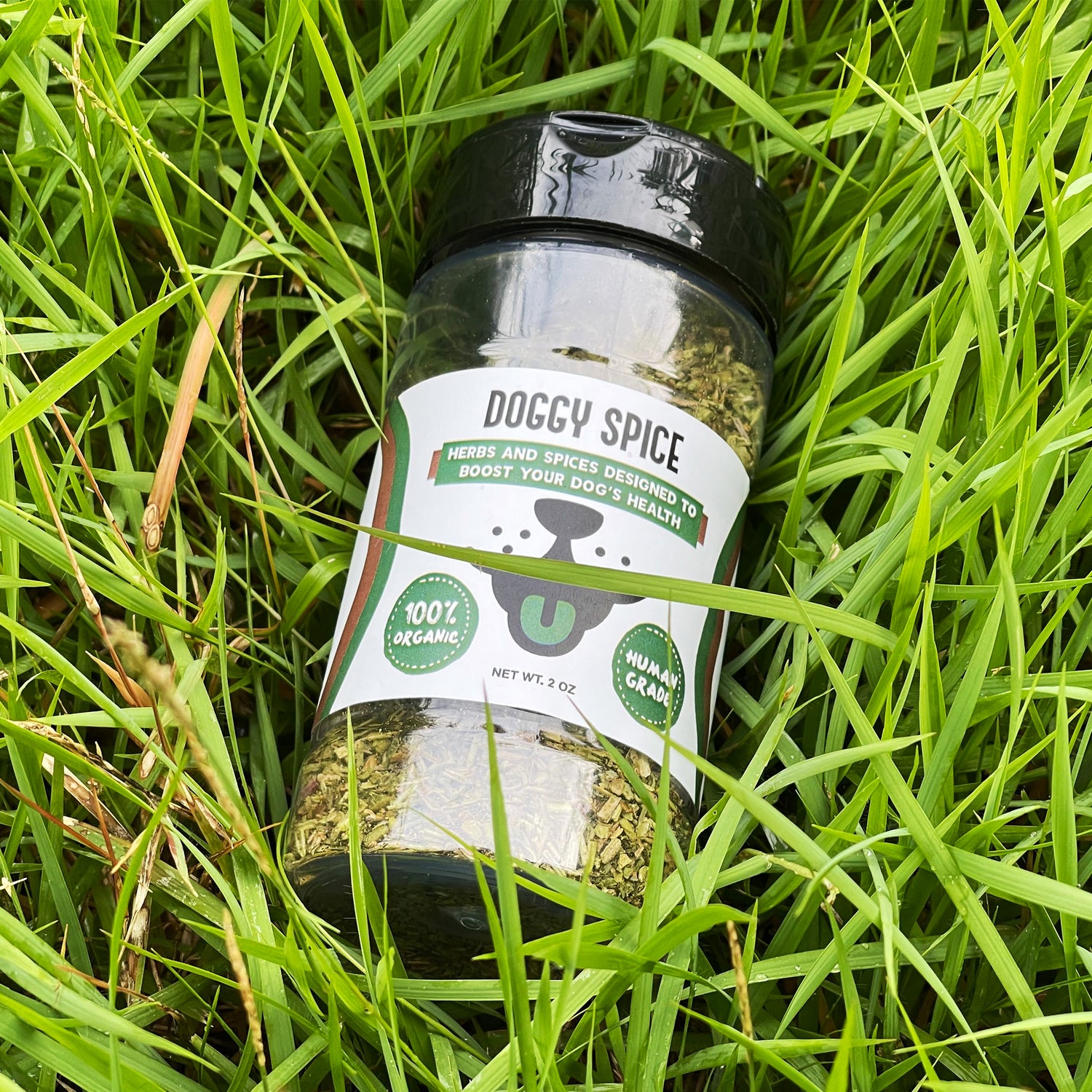
The Role of Omega-3 Fatty Acids in Your Dog’s Diet
Share
Introduction
Omega-3 fatty acids play a crucial role in your dog's overall health and well-being 🍁. These essential fats are known for their anti-inflammatory properties, heart health benefits, and contributions to healthy skin and coat. In this guide, we’ll explore everything you need to know about omega-3 fatty acids for dogs, from their sources to their benefits, signs your dog may need them, how to supplement, and frequently asked questions.
What Are Omega-3 Fatty Acids?
Omega-3 fatty acids are polyunsaturated fats that are essential for various bodily functions. Since dogs cannot produce omega-3s on their own, they must be obtained through their diet. The three primary types of omega-3s include:
- Alpha-linolenic Acid (ALA): Found in plant oils like flaxseed oil.
- Eicosapentaenoic Acid (EPA): Found in marine sources like fish oil.
- Docosahexaenoic Acid (DHA): Also found in marine sources, crucial for brain development and cognitive health.
Why Are Omega-3 Fatty Acids Important for Dogs? 🐶
Omega-3 fatty acids are not just beneficial; they are vital for your dog’s overall health. From puppies to senior dogs, omega-3s can improve various aspects of your dog's life. Here’s why:
- Anti-Inflammatory Properties: Omega-3s combat inflammation, making them essential for managing conditions like arthritis and inflammatory bowel disease (IBD).
- Cell Function: They support cellular integrity and are crucial for a healthy immune system.
- Brain and Eye Health: DHA, in particular, is vital for the development of the nervous system and vision in puppies.
Benefits of Omega-3 Fatty Acids for Dogs
Omega-3 fatty acids offer several health benefits for dogs:
- Improved Joint Health 🫠:
- Reduces inflammation in joints, aiding dogs with arthritis.
- Enhances mobility in aging dogs, improving their quality of life.
- Heart Health 💟:
- Promotes cardiovascular health by reducing triglycerides.
- Regulates heart rhythm and blood pressure, reducing the risk of heart disease.
- Healthy Skin and Coat 💇♂️:
- Reduces itching and flakiness caused by allergies.
- Adds shine and softness to the coat, keeping it vibrant and healthy.
- Cognitive Function 🧠:
- DHA supports brain development in puppies, aiding in learning and memory.
- Enhances cognitive abilities in senior dogs, helping with age-related mental decline.
- Immune System Support 🌱:
- Boosts immunity by reducing inflammation.
- Helps manage autoimmune diseases and supports recovery from illnesses.
- Read how to treat common dog allergies.
- Improved Digestion:
- Alleviates symptoms of inflammatory bowel disease (IBD) by soothing the gastrointestinal tract.
Top Sources of Omega-3 Fatty Acids for Dogs ✅
Here are some excellent sources of omega-3 fatty acids for dogs:
- Fish Oil: Rich in EPA and DHA; commonly available in liquid or capsule form.
- Krill Oil: An excellent alternative to fish oil, with high bioavailability and added antioxidants.
- Flaxseed Oil: Contains ALA, ideal for plant-based diets.
- Chia Seeds: A vegetarian source of omega-3s.
- Algae Oil: A sustainable and vegetarian source of DHA.
|
Source |
Type of Omega-3 |
Recommended Serving |
|
Fish Oil |
EPA, DHA |
20-55 mg per pound of body weight |
|
Flaxseed Oil |
ALA |
1 tsp for small dogs, 1 tbsp for large dogs |
|
Krill Oil |
EPA, DHA |
10-30 mg per pound of body weight |
|
Algae Oil |
DHA |
Follow manufacturer’s guidelines |
Signs Your Dog May Benefit From Omega-3 Fatty Acids
Omega-3 supplementation may be necessary if your dog exhibits the following signs:
- Dull, dry, or flaky coat. Learn more about how to recognize dry skin in dogs.
- Chronic itching, allergies, or skin infections.
- Joint stiffness or visible discomfort while moving.
- Cognitive decline in senior dogs.
- Inflammatory conditions like IBD or skin issues.
- Cardiovascular concerns or heart-related conditions.
How to Supplement Omega-3 Fatty Acids
Adding omega-3s to your dog’s diet is straightforward. Here’s how to do it:
- Choose High-Quality Products: Ensure the supplement is from a reputable brand and free of contaminants like mercury and heavy metals.
- Start Slowly: Introduce omega-3 supplements gradually to avoid digestive upset, especially in dogs with sensitive stomachs.
- Monitor Dosage: Consult your veterinarian to determine the right dosage based on your dog’s weight, size, and overall health.
- Check for Additives: Avoid supplements with artificial preservatives, flavors, or colors.
Omega-3 Dosage for Dogs Guidelines 🐕
- Small Dogs (10-30 lbs): 300-900 mg daily.
- Medium Dogs (30-60 lbs): 900-1,800 mg daily.
- Large Dogs (60+ lbs): 1,800-3,000 mg daily.
Common Misconceptions About Omega-3 Fatty Acids for Dogs
- My dog doesn’t need supplements if they eat kibble. While some kibbles include omega-3s, these fats can degrade during processing. High-quality supplements ensure your dog gets the required amount.
- Plant-based omega-3s are enough. While ALA from plants is beneficial, EPA and DHA from marine sources are more bioavailable and effective for dogs.
Scientific Insights on Omega-3s
Omega-3s for Dogs Frequently Asked Questions (FAQ) 🧐
What are the best sources of omega-3s for dogs?
The best sources include fish oil, krill oil, and algae oil, which provide EPA and DHA. Plant-based sources like flaxseed oil are also beneficial but mainly contain ALA.
Can I give my dog human omega-3 supplements?
It’s best to choose omega-3 supplements specifically formulated for dogs to ensure appropriate dosing and avoid harmful additives.
Are there side effects of omega-3 supplements?
In rare cases, dogs may experience mild diarrhea, fishy breath, or a greasy coat. Always start with a low dose and increase gradually.
How do omega-3s help dogs with allergies?
Omega-3 fatty acids reduce skin inflammation and improve the skin’s barrier function, helping manage symptoms of allergies like itching and redness.
How long does it take to see benefits from omega-3s?
Improvements in coat quality and joint mobility can typically be observed within 4-6 weeks of consistent supplementation.
Top Herbs and Spices to Keep Your Dog Healthy All Year 🌿
- Cleavers (Galium Aparine) - Supports lymphatic health
- Rosemary- Antioxidant-rich
- Dandelion Greens - Provides vitamins A, C, and K
- Basil - Calming properties
- Peppermint - Aids digestion
- Celery Seeds - Anti-inflammatory benefits
- Dill - Rich in antioxidants
- Oregano - Immune-supporting
- Parsley - Supports fresh breath
- Thyme - Immune booster
- Ginger - Soothes stomachs
- Tumeric - Anti-inflammatory properties
These herbs and spices can easily be incorporated into your dog’s meals with Doggy Spice to promote overall well-being. 🌱
Conclusion
Incorporating omega-3 fatty acids into your dog’s diet is a simple yet impactful way to enhance their overall health. From reducing inflammation to improving skin and coat quality, the benefits are numerous. Combined with dog-safe herbs and spices, omega-3s can provide holistic health support for your furry friend. Always consult your veterinarian before starting any new supplement, and opt for high-quality sources to ensure your dog’s safety and health.
References
- Journal of Veterinary Internal Medicine. (2023). Benefits of Omega-3 Fatty Acids for Joint Health in Dogs.
- American Kennel Club. (n.d.). Omega-3 Fatty Acids and Their Role in Dog Nutrition. Retrieved from https://www.akc.org
- Veterinary Health Institute. (2022). Essential Fatty Acids for Dogs: A Comprehensive Guide.
- National Animal Supplement Council. (n.d.). Choosing the Right Omega-3 Supplement for Pets.

